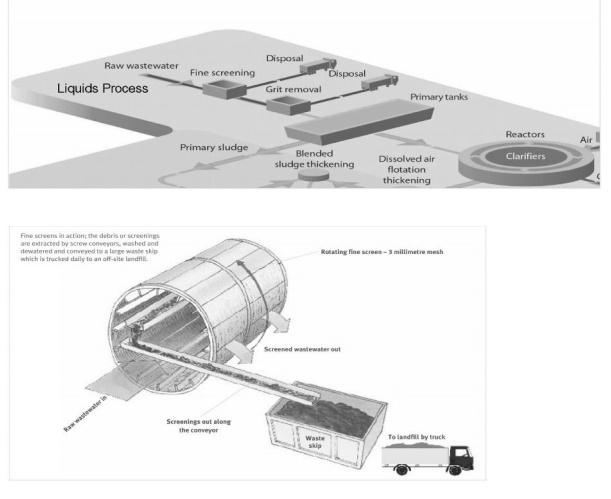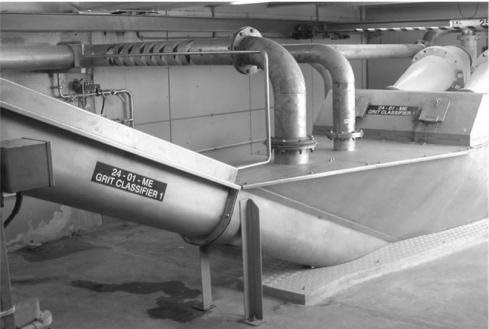Chapter: Civil : Environmental Engineering : Sewage Treatment
Sewage Treatment: Screening and Pre aeration tanks

Screening
Screening is the first
line of treatment at the entrance to the wastewater treatment plant where six
new fine screens, arranged in parallel channels, intercept solid material in
the influent wastewater.
The fine screens
replace the old-technology (19 millimetre bar screens) and have a stainless steel
mesh with apertures of three millimetres. The drum-shaped screens are not
static pieces of equipment but are large revolving mechanisms, constantly
rotated by hydraulic drives. The screens break up the raw sewage flowing into
the plant and extract material such as paper, fruit and vegetable pulp,
plastic, wood and sanitary items.
Banks of water jets
within the rotating screens constantly blast the debris from the mesh. The
debris or screenings (up to eight tonnes per day) are extracted by screw
conveyors, washed and dewatered and conveyed to a large waste skip which is
trucked daily to an off-site landfill.
Pre-aeration tanks
The 12 grit removal tanks, also known as
pre-aeration tanks, are
14 metres x 12 metres
with a water depth of 4.6 metres. Each tank has a volume of 703 cubic metres
and is partially divided into two sections (north and south) with one air
sparge pipe and one grit ejector in each section.
Air, pumped from a perforated pipe running along the
side of the tank floors, generates a swirling motion which reduces the
effective density of the wastewater. This encourages the inorganic material
(finer than three millimetres), namely, sand, silt and fine gravel to settle
out. The aeration process also adds oxygen to the wastewater which, by the time
it reaches the treatment plant, can be oxygen deficient.
The
organic solids remain in suspension. The settled grit is collected in a hopper
at one end of the steeply sloping floor. Here grit pumps automatically extract
the grit and transfer it through a pipe network to grit washing facilities
above the truck loading bay. It is then removed by water ejection to a washing
tank and fed into another hopper by a screw conveyor where it is dewatered. The
extracted grit is trucked off-site for disposal in landfills

Related Topics